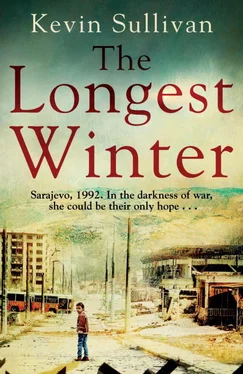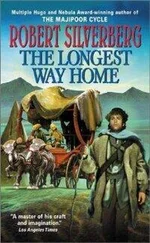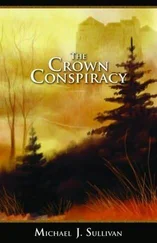And so many people discovered dangerous pleasures. National pride brings wonderful comfort to a stunted imagination. It is thrilling to see your people on the march, to learn that you have been oppressed, to be convinced that you must rise up!
Chauvinism is seductive.
It is degrading too. It leads to dirty frozen hospitals.
The night had become clear and Alija could see stars. For a moment he was lifted out of his thoughts by a view of glittering light across the heavens.
But Otes was lost, and that put the whole western part of the city at risk – his city and his world. He could not contemplate the infinite in tranquillity.
He drove on through snow-bound streets without headlights. He didn’t drive fast, and he tried to drive carefully. It took him twenty minutes to reach the bar where Milena worked.
‘She hasn’t come in yet and I don’t suppose she’ll be coming now,’ one of the waitresses told him. ‘Must’ve got stuck in the bombardment. Probably stayed at home.’
Alija decided to call at Milena’s apartment in the morning. It was too late to return to Alipašino Polje now.
Instead, he went to his friend Dr Jurić’s dinner party.
Soon after Wikram was killed, Brad had left Sri Lanka. He didn’t want to take a newsroom job and a dispute arose over where he would be posted next. The dispute became acrimonious and ended in the paper letting him go. He set himself up as a freelance – with the usual protestations of satisfaction at having been liberated to follow stories that really interested him. At first it was relatively easy to get work; in the media goldfish bowl he had a modest but marketable reputation. But he’d lost the knack of selling his own narrative of events. Once, his judgment had shaped his employers’ judgment, but now editors called him back on stories, asked him why the competition had a different angle, why his own pieces were late or out of kilter. And all Brad could do was rage.
Which was why, long after that violent evening in Sri Lanka, his latest job looked like it was slipping away. The message he received just before the night-time bombardment presaged the end. He read the words silently several times. Then he shouted at the computer.
‘Sonofabitch!’
He read again, and remarked indignantly, ‘Moron!’
Your early file was confused and unusable , the news editor had written . We need clear, factual reporting, without fireworks .
‘Without fireworks!’ he hissed, looking at the computer. He drank more beer. ‘How do you report an assassination without fireworks?’
He picked up the TV remote control and flicked through the channels. The hotel generator was working again – who knew for how long – and the satellite cable had been fixed. He stopped at CNN. A woman in Atlanta predicted snow in parts of Europe. She smiled indulgently and spoke about skiing.
Brad looked at the message again. He hadn’t come to terms with it yet. Anna’s piece was very much better than your own , it concluded. Suggest you liaise with her more closely. Present performance not up to scratch .
He was still absorbing the import of these words when Anna came into the room.
When she had arrived in the city Brad had wanted to know everything about Anna, but there wasn’t a great deal to know. She had worked briefly in Guatamala and Nicaragua, writing stories about low-level insurgency. She spoke a little French and Spanish and she’d spent six months on the newsdesk, which meant she knew everyone in the organisation very much better than Brad did. What he didn’t ask and never found out was if she understood the predicament that he was in.
Brad would have been surprised by the answer if he’d asked the question, because Anna did understand his predicament. If he’d been more gracious she would have tried hard to make it clear to him – and to the newsdesk – that he was in charge and that she had no intention of stepping on his toes, never mind stealing his job.
Anna could see what the newsdesk couldn’t – that Brad hadn’t surrendered to his demons. But he hadn’t given her a chance to do much more than scurry around trying to stay out of his way.
‘I’m going back to Otes tomorrow,’ she said. Her voice was even.
He gave her an obtuse look. She might have described it as a childish look except that his features were so strikingly worn and weary that they chased away comparisons with a little boy. ‘I need the Land Rover,’ he said.
‘For what?’
He would think of something.
‘You can come if you want,’ she said, ‘but I’m taking the hard-top. Dr Barnes is bringing the little boy out first thing.’
Brad shrugged. Sanela had sent a message saying that the next day’s interview – the one he’d planned to do with Milena – had been cancelled. ‘OK, we’ll both go.’
The implications of the newsdesk’s admonition – liaise more closely with Anna – were profound. He guessed that if he tried to assert his authority he would discover that there was no longer any authority to assert, and he guessed too that whatever he reported tomorrow, a story about evacuating the British doctor would trump it.
‘Is anyone else going?’
‘Don’t think so,’ she said. ‘Can I take one of these?’ She stood over the crate of Carlsberg.
They hadn’t really socialised since Anna’s arrival in the city. Briefly he considered the fact that with his beer stash dwindling he was going to have to make another trip across the frontline to get supplies, but then he nodded. ‘Sure. Go ahead.’
He had never actually seen her drink alcohol. Her abstemiousness matched the view he had formed – that she was too earnest.
She bent down and extracted a can from beneath the clingfilm. The beer was at room temperature, which meant that it was nicely chilled.
Along with everyone else, Brad had noticed that Anna was pretty, but he hadn’t thought until that moment, watching her open a can of beer, that she was vulnerable too. He hadn’t until then thought of her as being anything other than hard-nosed and ambitious. She was, in fact, very young to be doing this kind of work.
Then he remembered the message he’d just received and he wasn’t inclined to indulge Anna. She was on good enough terms with the newsdesk to conspire with the people who wanted him out. Yet the rage was dying. They were having a drink together and there was no point in renewing their quarrel.
When Anna eventually spoke she returned to the main issue of the day.
‘The door should never have been opened,’ she said. ‘They fucked up!’
It was, he knew, more complicated than that. ‘It’s only a fuck-up when things go wrong.’
He turned the hard chair round, the one they used at the computer. Anna walked over from the window and sat on the bed.
‘They tried to talk their way through,’ he said. ‘They thought they could do that.’
‘But they have standing orders; they’re not supposed to open their APCs for inspection.’
‘You don’t always think things through!’ he said, his voice too loud.
Throughout the day, he had spoken with more force than he’d intended.
The curious mellowness that had briefly descended on them wasn’t quite shattered by his impatient tone, but it was shaken a little.
‘You can’t calculate,’ he continued. ‘Not in those circumstances. You just do what you think is going to work. You can’t do more than that. And if it doesn’t work you don’t get a second chance.’
She remembered his odd remark about responsibility, after he’d stormed out of Dejan’s office. She understood that there was more going on in Brad’s head than a preoccupation with what had happened on the Airport Road.
Читать дальше












